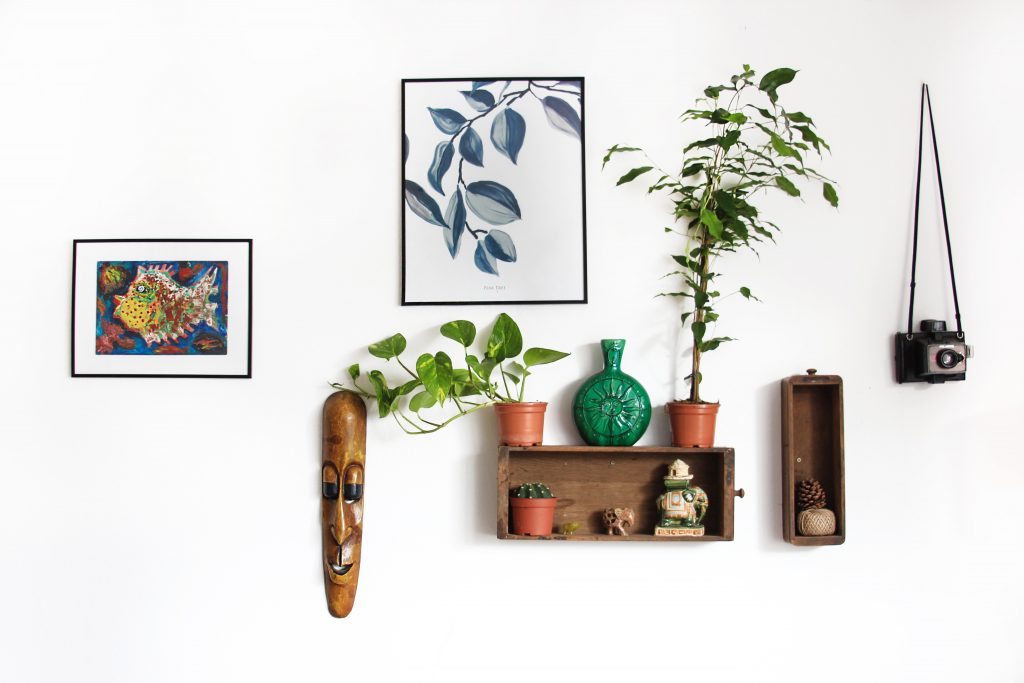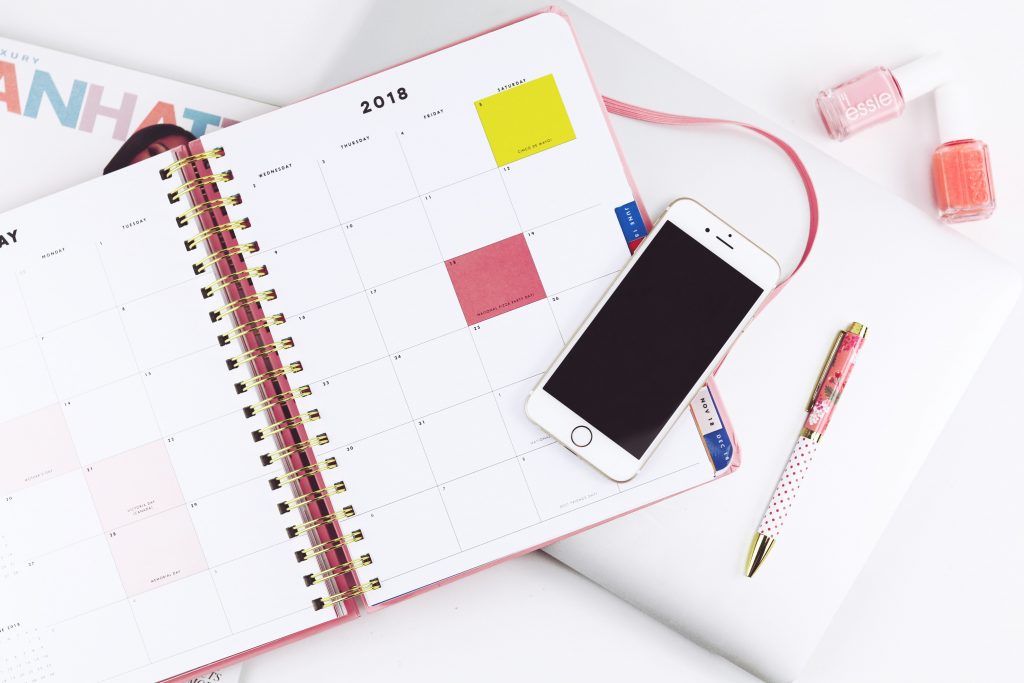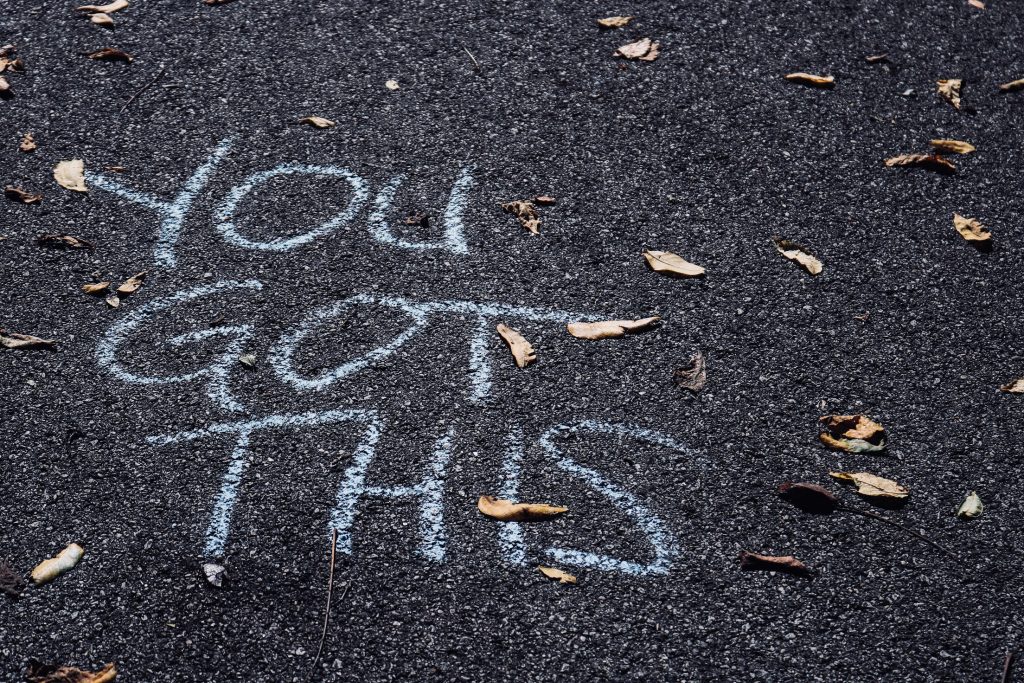
I recently spoke to a friend of a friend, M, about her work. She finds her current job stressful and she can’t see herself carrying on all the way through to retirement. We got talking about what she’d always dreamed of doing – working in interiors and decoration. And seeing the way she lit up talking about it…I asked her if she’d ever consider trying to move into it. But as we talked it was obvious there were a few barriers stopping her from thinking it could ever be possible.
The barriers M put in her way are really common. I don’t have the time. Other people are already doing the work. I’d need a qualification. The courses I’ve seen are far away and too expensive.
What’s it worth?
M was interested in taking a course to learn more and had looked into a couple. But the fact that they were pricey and bit of a distance away was an obstacle. I asked if the prospect of learning more, of enjoying exploring the world of design, of meeting like minded people, could be worth it. M admitted she’d love to give it a try.
So is it worth saving up or cutting back to afford it? Is it a potentially worthy investment? Could she find a way of prioritising the time she’d need to travel there and back?
The qualification issue
Another of the most common barriers, M felt she would need a qualification in order to set up and be taken seriously. I asked her – if someone could teach you how to do something, or could do it for you (with amazing results), would you care if they had a qualification or not?
I know some careers do require rigorous training and it may be the case that a certain level of education is required to be an interior designer. But in so many careers knowledge and experience count for a lot. And there’s always the possibility of studying for a qualification alongside getting work experience or during the very early stages of starting a business. I started coaching while studying for my coaching qualification. This doesn’t have to be a barrier.
For example, say I want to decorate my house. Imagine I have a bit of a budget, but zero interest in actually doing the research and searching for items or considering aesthetics. I would totally want to pay for the services of someone with amazing taste, whose own house is beautifully decorated, and who can make the transformation easy for me.
And get this – M mentioned that a few friends had commented on her style, or hinted that they’d love her to makeover their houses. I got excited hearing this! Proof there’s a market for her and proof she doesn’t necessarily need a qualification to get started. She could get started working with friends, and see what happens with word-of-mouth.
Timing
In her free time M’s pinning decoration images on Pinterest and obsessively scanning Instagram. We agreed that dedicating even 30 minutes a week would be time well spent on exploring this potential new career. She can put that research to good use! And use the time to set up working for a friend for free, or calling to find out more about the course and enrolling, or working out what niche she’d focus on. Maybe seeing if she can interview or shadow someone local working as a interior designer. Step-by-step.
What if
So often we put pressure on ourselves when it comes to trying something new, putting immediate barriers in place. What if I don’t enjoy it, what if I change my mind and am no longer interested? What if it’s not for me?
Well on the other hand, what if it’s amazing – and changes everything?
The worst could be that you start taking small steps into that world, and realise you don’t enjoy it. This will help you decide that its not the path for you. You’re still a step ahead. You’re getting closer to what you want. It’s not a step back. You’ve set the gears in motion for change. You’ve shaken things up and you’re showing yourself that you’re taking yourself seriously. You can build on this.
Side Hustle
For instance M could offer her services for free and then use the results as a portfolio/case study. Go through the process with a friend/’client’ and learn from the experience. See if she actually enjoys it and if the client is pleased with the outcome (maybe following up with a questionnaire or asking for a testimonial). Was anything tricky? What could be improved? Did anything go well? Did she feel under qualified?
This could all be done on the side of carrying on with her full time employment. I’m not suggesting quitting and starting from scratch. M can slowly build up her experience, and be sure it’s a career path that appeals.
Lightbulb moment
Finally, with I visited M’s home, I was struck by the fact that she’s probably got the most stylish house I’ve seen for a couple with young kids. Her young daughters’ bedroom had simple, lovely colours, kid appropriate but not garish. In one corner of the room there was a massive leafy plant in front of a big shuttered window, with light filtering through. There was excellent storage so there weren’t toys all over the place. Somehow this all changed the room from any old kids bedroom to ‘dream’ kids bedroom.
Their home was sleek, stylish and not overrun with kids stuff. It struck me – that could be her niche. How to have a beautiful home when you’ve got kids. How to achieve the stylish, zen-like look even if your day-to-day is as chaotic as everyone else’s.
Her dream is so big and exciting, and seems so far away that she can hardly contemplate it one day being a reality. But once M can get over her mindset blocks and start believing it could one day be possible, all she needs to do is start taking small steps to make it happen. It might take a while, but it’s possible.
Want some help with your mindset?
Let me know if you’d like to speak to me about moving forwards with your big dreams, and dealing with your mindset. Removing barriers. I can help! I love doing this. I’ll help you to see the possibilities, and we’ll work out a plan together. Email me at joaopoku@gmail.com to make a booking.
Photo by Manja Vitolic on Unsplash




